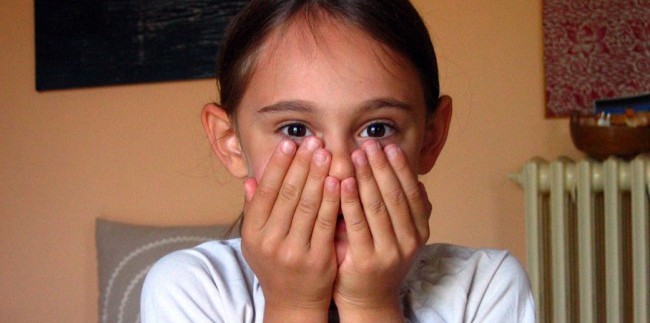 By their very nature, anxious children may tend to be a bit introverted and shy. That’s perfectly OK, but it can also lead to them missing out on some of the finer things in life, like enjoying themselves at parties, with playground pals or even puttering around the neighborhood.
By their very nature, anxious children may tend to be a bit introverted and shy. That’s perfectly OK, but it can also lead to them missing out on some of the finer things in life, like enjoying themselves at parties, with playground pals or even puttering around the neighborhood.
While you don’t want to force your child to be the queen or king of the social butterfly scene, you can boost your anxious child’s confidence and assertiveness with some helpful tips. The tips come from PsychCentral and clinical psychologist Dr. Laura Markham and they can enhance your child’s confidence as well as your overall relationship.
Encourage Your Anxious Child to Discuss Fears
Anxious children aren’t necessarily going to walk up to you and say, “Hey, I’m worried and afraid.” They’ll instead exhibit behaviors that point to something being wrong. These include:
- Extended temper tantrums
- Meltdowns with no apparent cause
- Physical pains that crop up with no medical explanation
- Troublesome sleeping or eating habits
- Extreme stubbornness
- Repetitive, body-focused behaviors such as hair pulling, nail biting or skin picking
- Rigid or fearful behaviors that seem to stick with your child in everything he does
Such symptoms can indicate your anxious child is a bubbling cauldron of fear inside, and you can help expel the fears if you sit down and encourage a talk about them. When heightened emotions come flowing out with the fears, and the tears, welcome them all in a warm, supportive embrace.
Always be open to letting your child tell you how he or she is feeling, not the other way around. When a big party is on the agenda, for instance, don’t automatically say something like, “Aren’t you happy and excited about the party?” Instead ask “How do you feel about the party? Is there anything you’d like to talk about?”
Tailor Your Parenting to Your Child’s Needs
Once you’re aware of signs of fear in your child, you can nurture your child when he or she needs you most. Yet another temper tantrum might be a sign that your child needs a little extra reinforcement, not a punishment that can serve to make the situation worse. Parenting anxious children often involves coming up with your own solutions, not necessarily those outlined in general parenting books.
Dr. Markham notes that responsive parenting helps children learn how to calm themselves and cope with shyness or fear, eventually figuring out how to effectively manage their reactions. The result is heightened sensitivity that becomes a forte, since your child becomes more responsive to other people’s needs.
Don’t Add Fuel to the Fire
The final tip is easy to avoid as long as you realize when you’re doing it. We may automatically refer to a certain child as “my anxious child” or “my shy one.” Not only does this shame the child, but it sets the scene for a self-fulfilling prophecy where your child may feel obliged to live up to the label.
Introducing your son or daughter as “my lovable, wonderful child,” on the other hand, is likely to never go wrong.
SOURCES:





